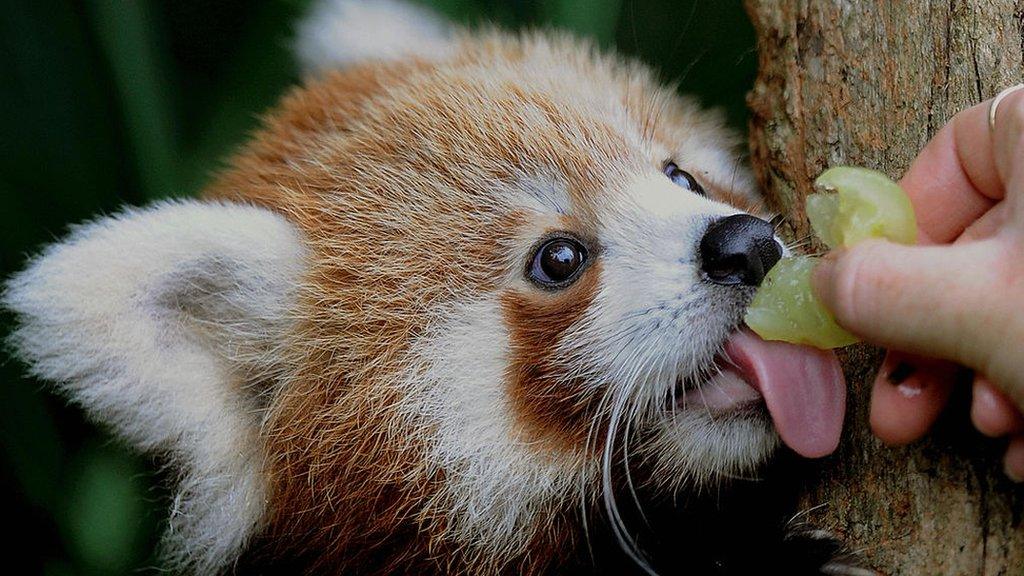Norfolk zoo 'overjoyed' at birth of endangered red panda
- Published
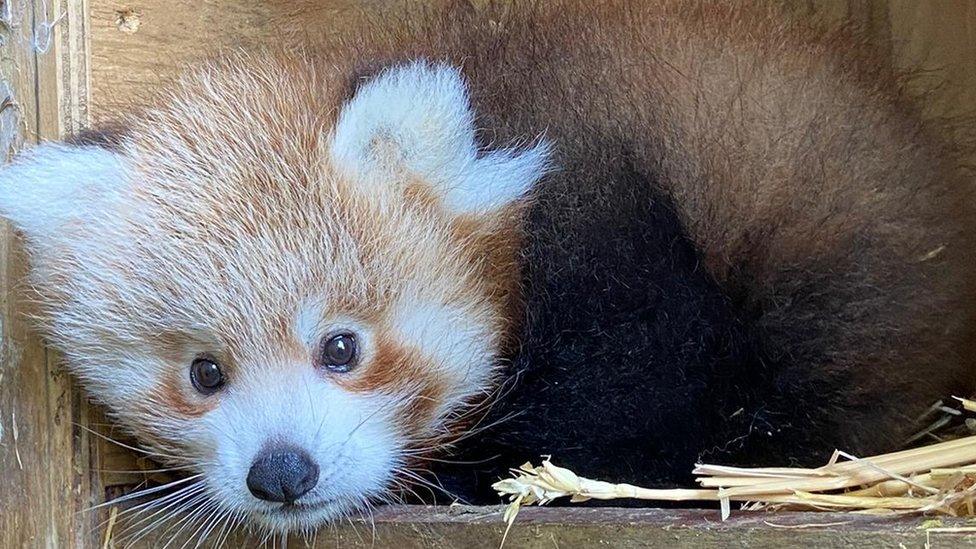
The female cub was spotted with her mother and is expected to remain in their nest for the first few months
A red panda cub has been born at a zoo as part of a programme to save the endangered species.
Banham Zoological Gardens in Norfolk said the pregnancy was planned and monitored.
The species is increasingly under threat due to deforestation and poaching and there are believed to be fewer than 10,000 left in the wild.
The zoo's carnivores team leader Oliver Lewis-McDonald said she was "absolutely overjoyed" by the new arrival.
The cub was born on 28 June and spotted nestled up to its mother, but Banham has delayed making the public announcement of the birth until the health of the newborn was assured.
She said: "Mithila and her cub are currently being given the utmost privacy in their nest boxes.
"Red panda cubs usually spend their first few months hidden in the nest before going out to explore their surroundings."
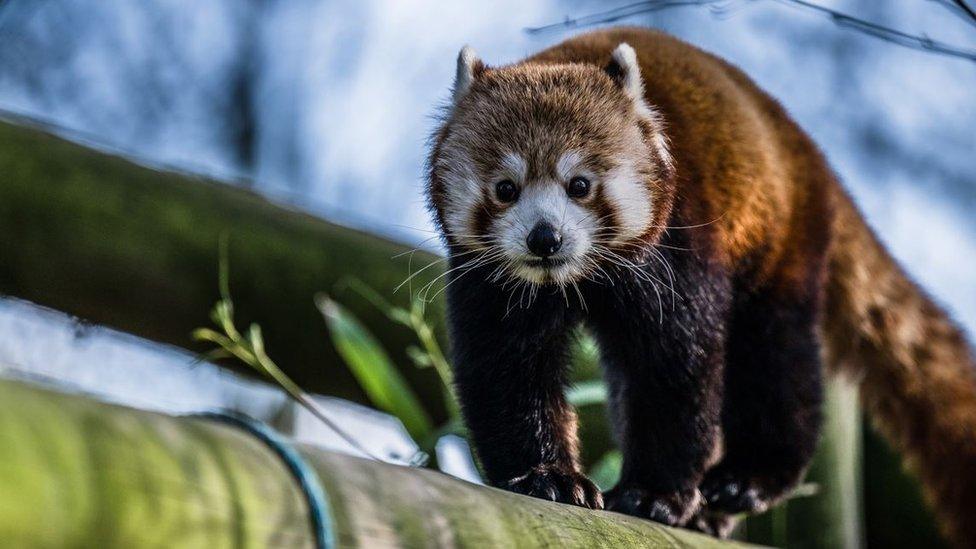
Mother Mithila became pregnant just weeks after arriving from a zoo in Sweden
Mithila came from a Swedish zoo to be paired with Banham's resident male Jasper in January.
He came to the park in 2015 and has previously fathered three cubs, which have gone on to collections all over Europe.
The red panda is classified as endangered, external on the International Union for the Conservation of Nature's red list.

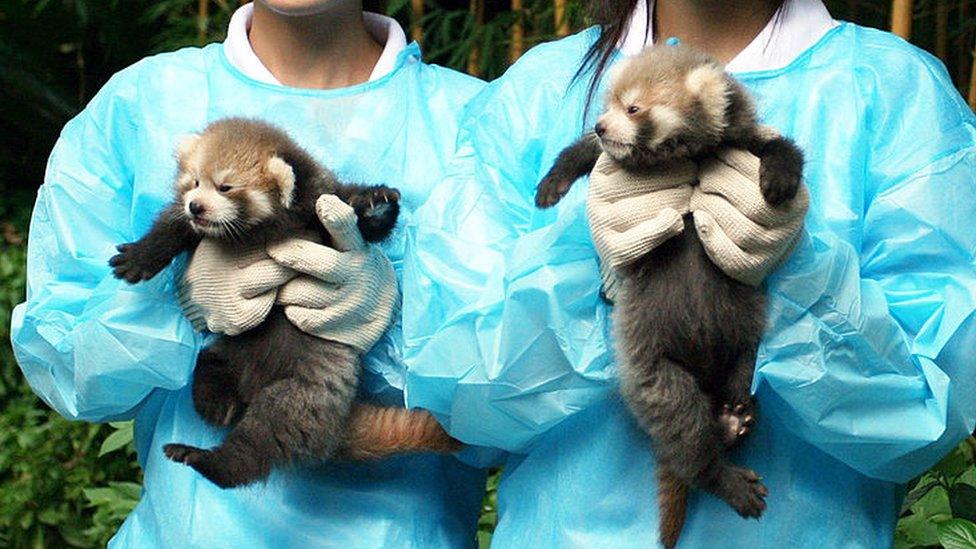
Red panda cubs reared at a zoo in China
The red panda
The small mammals resemble bears but are in a genus of their own known as Ailurinae
The wild population continues to decline due to habitat loss, poaching, and inbreeding
Lives in trees and the herbivore mainly eats bamboo, using sharp, curved claws to grip the stems
Not closely related to the giant panda
It is now protected in all countries in which it lives, and hunting is illegal
Although looking very similar, DNA evidence suggest there are two separate species of red panda
The World Wildlife Fund estimates there are fewer than 10,000, external remaining in the wild

Find BBC News: East of England on Facebook, external, Instagram, external and Twitter, external. If you have a story suggestion email eastofenglandnews@bbc.co.uk, external
Related topics
- Published20 September 2022
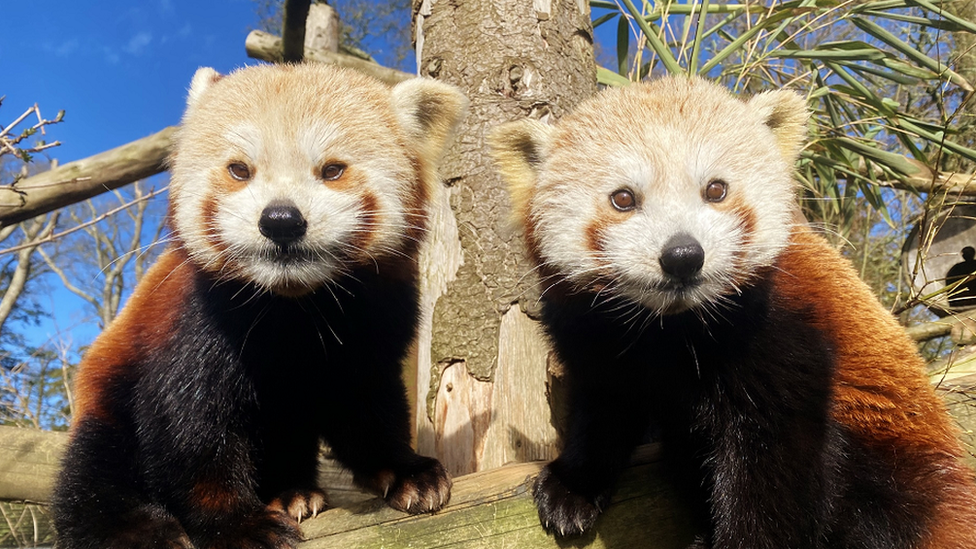
- Published7 September 2022
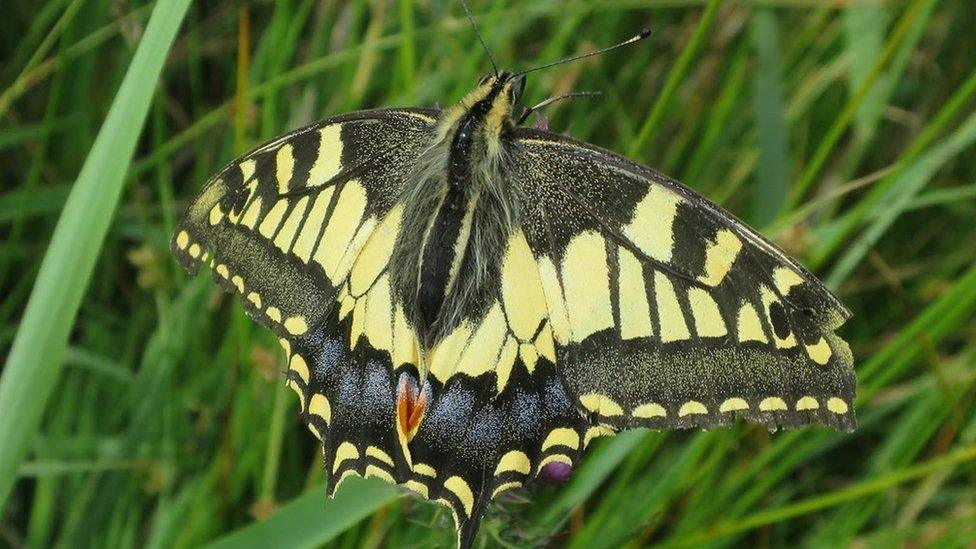
- Published16 August 2022

- Published26 February 2020
